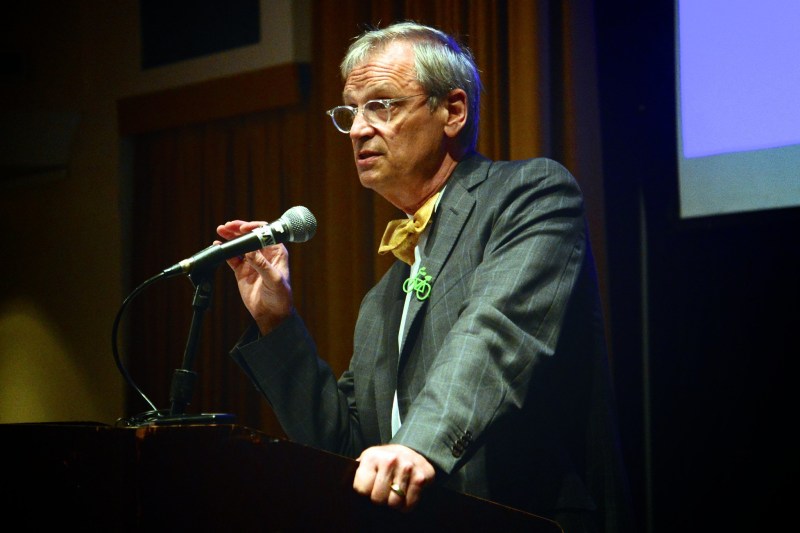Three Congress members this week proposed giving cities billions of dollars in federal transportation for street safety as the number of pedestrians and cyclists killed by drivers reached its highest level since 1990.
Bike Caucus co-chairs Earl Blumenauer (D-OR), Vern Buchanan (R-FL) and Ayanna Pressley (D-MA) on Wednesday introduced the Vision Zero Act, which would enable federal grants for localities with programs that demonstrably reduce traffic crashes and help cyclists and pedestrians safely navigate public spaces.
Blumenauer said Congress must act in light of the alarming rise of pedestrian and cycling fatalities over the past decade. Some 36,560 people died in traffic crashes last year, according to national highway safety data, with those in cities bearing the brunt of the carnage: Pedestrian fatalities have climbed 69 percent in urban areas since 2009, while cycling fatalities have jumped 48 percent.
“We cannot accept the failure of rising traffic deaths, especially considering those deaths disproportionately impact low-income and vulnerable communities,” Blumenauer said in a statement. “The Vision Zero Act will allow federal funding to aid in reducing preventable traffic fatalities that are devastating communities across the country. Everyone deserves access to safe, equitable transportation options.”
The bill would revise the $287 billion Surface Transportation Bill, which expires next September, in order to make localities with Vision Zero plans eligible for almost $15 billion in funding from Surface Transportation Block Grants, the Congestion Mitigation and Air Quality Improvement program and the Highway Safety Improvement program.
Cities and states that apply for those grants can use the funding for many kinds of transportation initiatives, including bridge and tunnel restoration, recreational trails, greenways, and pedestrian and bike infrastructure such as protected bike lanes. The inclusion of the Vision Zero Act in the federal code would signal to localities that pedestrian and cycling safety is a priority with real dollars attached to it, congressional aides said.
"We’re not adequately investing in protecting vulnerable road users," a Democratic aide familiar with the bill told Streetsblog. "It takes a real effort from community leaders and local governments and state leaders to make sure we’re spending money on the right way and the right things."
In order to be eligible for Vision Zero Act funding, cities must show how heir plans would eliminate pedestrian fatalities and injuries, educate the the public about enforcement, invest equitably in low-income neighborhoods and communities of color, collaborate with local government bureaus, and develop ways to evaluate safety data to ensure success, according to the bill.
So far, 45 cities have Vision Zero programs, but congressional aides believe that number could rise dramatically if the bill succeeds. The funding could appeal especially to smaller cities and rural areas that want to improve safety but lack the resources to make infrastructure improvements.
"These areas are often more financially strapped, have one transportation planner or share one with the next town over, and have a lot on their plate so they can’t develop a Vision Zero plan," the aide said. "Having the ability to use federal transportation dollars of the actual development and implementation of the plan is really helpful."
A hike in federal funding also could help large cities, such as New York, where Vision Zero plans to eliminate traffic deaths by 2024 have stalled amid a 22 percent rise in fatalities so far this year. The de Blasio administration, which continues to tout its approach, is closely tracking the legislation.
Getting congressional Republicans to sign onto the bill may present a challenge. So far the bill has eight co-sponsors, with Buchanan of Florida the only Republican. House Transportation Committee Chairman Pete DeFazio won't let Republicans mark up the surface transportation bill because they oppose the climate-change provisions, according to Politico.






